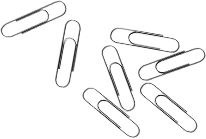Blog
- Information directly from the translation industry
- Advice from experts
In the midst of ever more advanced computers and software, an interesting question arises: will translation machines ever render the human translator obsolete?
Translators have been using computers for some time now to compare synonyms, look up specialised jargon, study the work of other translators, etc. But all decisions regarding the text to be translated are taken by the translator, who determines how the text should be translated, both in terms of literal meaning and in terms of intention and emotional value.
The computer is definitely a handy tool, but that is all it is. Furthermore, it is a great machine to play with. Something translation helpers are perfect for. Try entering a beautiful full sentence into a translation program and see what funny digital poetry it comes up with.
Will this forever be the role of computers, or does this attitude underestimate what the future holds? Are computers eventually going to take over?
There are days that the world slightly changes in this regard. February 10, 1996 was such a day. Something happened that caused a slightly uneasy feeling in those who thought computers would take a while to catch up to us. On that day, a computer with the mysterious name Deep Blue managed to beat the reigning world champion of chess, Garri Kasparov.
We already knew that computers are much better at numbers and memory than humans. But that they were able to beat humans in the field of strategic insight and creative intelligence was quite a shock. After all, we considered top chess players as brilliant lunatics, and we enjoyed the peculiar traits they often had. In other words; we describe chess players as those who demonstrated what amazing feats the human brain is capable of. And now, the brain of brains had been brought to its knees by a machine; a cold, emotionless thing that did not even care whether it would win or lose.
Kasparov made an impressive comeback, he secured three victories and two draws. Thus, he beat the computer by 4 – 2. In his own words, he saved ‘the honour of mankind’ by doing so. Kasparov complained about that terrible lost game, and accused people of manipulating the computer, but that was the end of it. Man had conquered the machine.
However, a year later, Kasparov suffered an inglorious defeat against Deep Blue 2, an improved version of Deep Blue. The chess computer not only won multiple games against the human champion, but also secured the final victory in the classical chess duel; the arena in which the two best gladiators played 6 long, tiring games to determine who would be crowned the emperor of the mind game of mind games. Kasparov – Deep Blue ended in 2.5 – 3.5, a humiliation to humanity. It made Kasparov a lot of money, but it mostly gave him a lot of frustration. We did not know whether or not this was the beginning of the end, but some years later, Kasparov definitively stopped playing competitive chess and devoted himself to politics. He ran for presidency against Vladimir Putin in 2008, but to no avail.
Does this mean translators should look for a different career path soon?
Let’s take a closer look at the matter. Chess is played with 32 pieces which can only be moved in prescribed ways. If we replace these pieces with words, we would need an unbelievably large chess board. And then there are the words themselves; other than their spelling, they are hard to define. A word often has multiple literal and figurative meanings, is subject to cultural interpretations, and can be used ambiguously, sarcastically, and humorously; in short, the possibilities are endless. Good luck, computer.
Digital translation tools will certainly get better and better, but do you ever see yourself signing a contract translated by a machine in a language you do not speak? Or would you rather have a human take care of that job?

Translation Agency complies with the highest attainable certifications: ISO 9001:2015, ISO 17100:2015, and ISO 27001:2022. Top quality, security and service remain our number one priority.


Translation Agency is a member of the VViN and EUATC; Organisations of translation agencies that work together to optimise quality and service.
